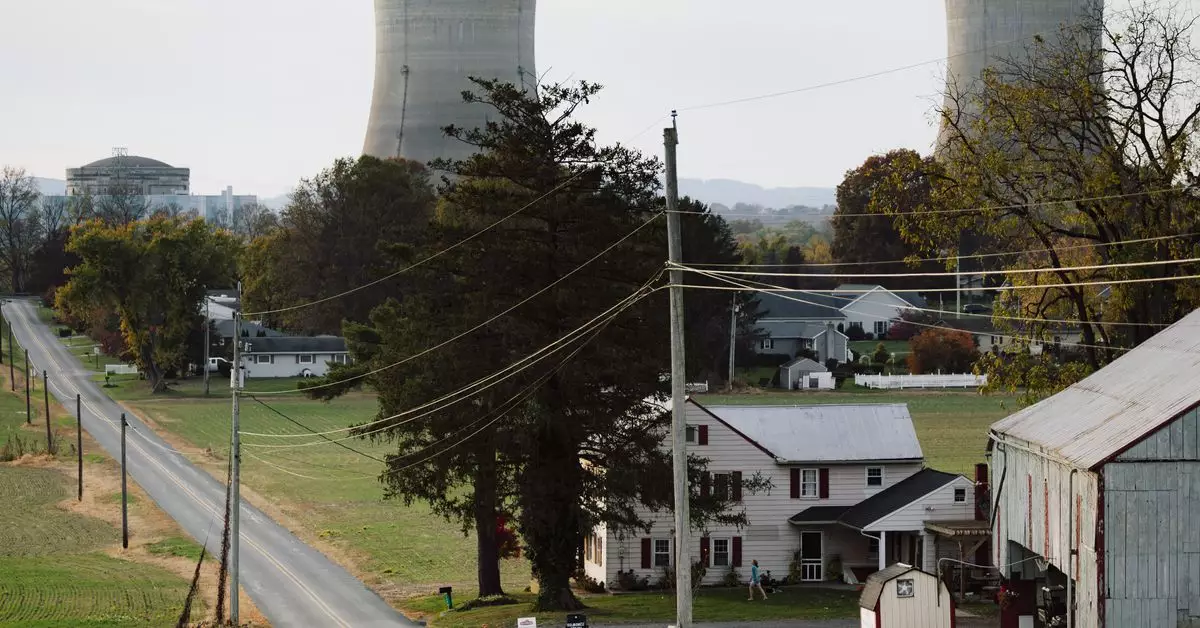The General Services Administration (GSA) is making waves in the energy sector with its recent announcement of a formidable 10-year contract worth $840 million, aimed at securing a substantial amount of nuclear energy. This contract includes a staggering 10 million megawatt-hours of electricity, enough to power over 1 million homes annually. Awarded to Constellation, the operator of the largest nuclear fleet in the United States, this deal not only signifies a turning point in government energy procurement but also highlights the growing recognition of nuclear energy as a vital component in the quest for sustainable and reliable power.
The recent surge in interest from major tech companies in nuclear energy underscores a broader trend. With the rising demand for power spurred by AI and data centers, technologically inclined industries are increasingly turning to nuclear solutions to sustain their operations. The significance of the GSA contract extends beyond its monetary figure; it marks a decisive shift in how government entities approach energy procurement, particularly in the face of growing concerns regarding climate change and energy reliability.
Nuclear energy has often been sidelined in conversations about sustainable energy, partially due to historical accidents and public apprehension. However, figures in the industry, like Joe Dominguez, the CEO of Constellation, argue that perspectives are evolving. His assertion that nuclear energy is no longer overlooked in corporate and governmental sustainable initiatives reflects a broader acceptance of its potential role in achieving carbon-free energy.
This transition to embracing nuclear power is critical, especially as the federal government stands as the largest consumer of energy in the country. The GSA’s significant commitment to nuclear energy could reshape the narrative surrounding the sector, providing a much-needed boost to the nuclear industry that has long struggled to find its footing in the renewable energy landscape. Dominguez’s remarks indicate that both private entities and the federal government are joining forces to foster investment in nuclear technology, underscoring its importance in a clean energy future.
Constellation’s commitment to producing carbon pollution-free energy reveals the dual nature of its operations. While nuclear energy is a cornerstone of its output, the company also engages in other renewable sources, including hydro, solar, and wind. Additionally, with a goal of achieving 100% carbon-free electricity by 2040, the strategic alignment with the GSA’s contract could help bolster their aims.
Interestingly, the specifics of the GSA’s energy procurement remain somewhat nebulous. While the deal guarantees a significant portion of nuclear energy, details regarding how much energy will stem from various sources remain undisclosed. Nevertheless, the contract is touted as the largest energy procurement signed by the GSA in its history, marking a critical juncture for the agency as it navigates the simultaneous demands of budgetary constraints and the push for sustainable energy solutions.
The foresight of the GSA to lock in stable prices amid fluctuating energy costs speaks volumes about the agency’s strategy to safeguard against the volatility anticipated in the energy market. As data centers increasingly compete for energy resources, the fixed costs enacted by this contract serve as a protective measure for numerous federal agencies, including the departments of Veterans Affairs and Transportation.
This proactive approach resonates with a national agenda aimed at transitioning away from fossil fuels. The Biden administration’s commitment to revitalizing the nuclear sector is evident in recent initiatives, such as a $1.52 billion loan to restart a retired nuclear station. These coordinated efforts signal a recognition that nuclear energy can and must play a pivotal role in America’s energy strategy moving forward.
The renewed focus on nuclear energy presents an opportunity for collaboration among various stakeholders, from tech giants to government agencies. As companies like Microsoft, Google, and Meta engage in nuclear energy deals, the collective push towards harnessing this energy source could drive innovation and development in the field.
Ultimately, the GSA’s groundbreaking contract with Constellation reflects a transformative moment in the nuclear energy sector, one where skepticism is being replaced by pragmatism. Embracing this technological advancement positions both the federal government and private sectors to leverage the reliability of nuclear power in cultivating a sustainable and efficient energy landscape for the future. The symbiotic relationship that is forming holds promise not just for the immediate stakeholders but for the nation as a whole, as it navigates the complex waters of energy consumption and environmental stewardship.


Leave a Reply